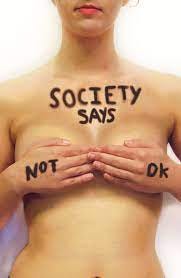On May 27th, Richard Hanania posted an interview with
about Walt’s past as a white nationalist and evolution out of identity politics into a more transactional, coalitional brand.In the show notes, Hanania references his own days as another formerly pseudonymous poaster, also offering similar ideas and content:
Walt and I have had somewhat similar journeys, so I invited him on the podcast to talk about his past and current thinking. He has come to realize that in many ways, his psychological profile is closer to that of liberal elites than it is to the regular Americans he once believed he was fighting for.
A poaster’s redemption
Since 2018, we have had a roughly 6-year run of canceling (deplatforming, ostracizing, unpersoning, debanking, expropriating etc.) various individuals for using unacceptable language and ideas, towards the end of which, Richard Hanania came clean about his history, having pseudonymously posted his own unacceptable thoughts in the past. When the mob came for Hanania this year, his then-forthcoming title from Harper Collins, The Origins of Woke, bucked the cancellation trend and made it past presale into all the normal distribution networks where the book deserves to be. Places that stock books like Eat, Pray, Love, A Million Little Pieces, and the Robin DiAngelo classic, Stop Shooting Black People, thus paving the way for others who have expressed ideas and used language unpalatable to lower-case-L liberal sensibilities.
The most important part of this is that while Hanania and Walt have indeed changed their political beliefs, they have not done a 180 and have not turned into progressives or even the type of Republican who makes a career by countersignaling every issue the base of their party cares about as so-called RINO’s are often accused of doing.
Some may criticize Walt for not self-doxxing or “facefagging” as the kids used to say but none of that matters here. What matters here is that Walt, pseudonymous as he may be, is saying that, even though he formerly espoused opinions (still does) that are considered impolite, he still not only has a seat at the proverbial table, but he can even sit at the head of it. In short, the ideas he espouses should be considered on the merits; nothing about his past internet footprint should preclude him from speech or thought-leadership in the present or future, for that matter.
Here’s where Regan enters the scene
opens her recent piece “Feminism is not about Fairness,” writing that she had a conversation with a man at an EA conference regarding gender equality first in India and then in The West. During the course of the discussion, Regan uses the term “patriarchy,” writing:What I did not mean was that “men are running everything” or that “society is explicitly structured for men at the expense of women”. Noticing the distance between what I had wanted to say and what I had ultimately communicated convinced me to mostly abandon use of the term. Rather than lazily using the word ‘patriarchy’ as a catch all, I now generally attempt to more precisely specify the cultural value, norm or trope I’m referring to.
But the term feminist also carries cultural baggage, and so I also was forced to reflect on what its use communicates to various audiences. I had noticed myself saying “I’m a feminist but…”, immediately jumping to explain how my use of the term likely differed from his immediate association with it before he could respond. A similar observation had motivated me to stop identifying as a Catholic back in my early 20s, after the list of ‘buts’ which followed “I’m a Catholic…” became so unwieldy I had to admit “oh, I’m actually… not a Catholic”.
But feminism is not like Catholicism. There’s no pope, there’s no Catechism. No one has the authority to baptize you and no one has the power to excommunicate you. There are lots of things feminists disagree on and there have always been lots of things feminists disagree on. It’s not at all uncommon for a feminist to call other feminists anti-feminist if they promote a view she disagrees with. But the thing that makes it a disagreement between feminists is that the disagreement is around whether a particular course of action, or a change in norms, laws etc. would lead to greater gender equality.
Regan continues (I promise, I am not going to copy/paste the who jam here):
But feminism is not like Catholicism. There’s no pope, there’s no Catechism. No one has the authority to baptize you and no one has the power to excommunicate you. There are lots of things feminists disagree on and there have always been lots of things feminists disagree on. It’s not at all uncommon for a feminist to call other feminists anti-feminist if they promote a view she disagrees with. But the thing that makes it a disagreement between feminists is that the disagreement is around whether a particular course of action, or a change in norms, laws etc. would lead to greater gender equality.
I continue to identify as a feminist, but I think there are plenty of reasonable critiques of what I’ll call ‘mainstream contemporary feminism’ for lack of a better term, several of which I’ve made myself. I don’t know exactly what defines ‘mainstream contemporary feminism’, or rather it’s not easily definable since there’s no particular person or organization which is recognized as its obvious leader. But, by the term, I mean to refer to whatever it is that non-feminists are talking about when they criticize feminism or discuss its effect on our society. I’m talking about the vague sense of what feminism means which emerges from popular culture and from observing commonalities among those who claim to be feminists. I’m talking about the cloud of associated concepts coming out of things like the Barbie movie, MeToo, wage-gap discourse and Captain Marvel (I can only assume, since I would never subject myself to a Marvel film).
My response to Regan’s arguments
If we are going to be so charitable to feminism as an identitarian ideology that shouldn’t be so besmirched as to make it so toxic you cannot call yourself a feminist, we should apply the same principles and arguments to other ideologies that check the same boxes to see if her arguments are good on the merits or rely on progressive, social pressures that make it more costly to attack feminism than to shut your mouth.
No Pope
As a 100% Ashkenazi brother (neither Catholic nor feminist), I have often thought how convenient it would be to call other people antisemitic to shut them up. Unfortunately, learning that there are many people vying for the top antisemitic slot and having no clear winner, my only conclusion is to think that, if there is no leader (like The Pope), none of the ideology’s various adherents can be said to represent the ideology; therefore, you must assume that bad actors or low-intellect representatives must be treated with the same respect as good actors and those who are intelligent enough to defend their positions. After all, it’s bad antisemites who give the good ones a bad name.
No excommunication
Being known for its big tent, inclusive culture, antisemitism (I promise they’ll take you back, Walt) is a very large club replete with crackers, SS officers, and jihadis alike. Anytime a group has millions of adherents, you can assume that the human capital contained therein must have a distribution of talent across high, middle and low clusters. Because these people have disagreements (see below) and disagreements often divide along class, average IQ etc., it stands to reason that the ideology must be described in positive terms when some people have it and negative terms when others have it.
Just like feminism, antisemitism is good when some people have it (Al Sharpton) but bad when other people have it (Kanye West). Thankfully for the ideology, it can’t be smeared by the behavior or words of any of the adherents, no matter how stupid they seem compared to the intellectual ones. Want to wear a pussyhat? We’ll just assume you got the same LSAT scores as Erin Brockovich. Order in the court!
Disagreements
Since feminists don’t have an official (nor coherent, nor agreed upon) platform of policy proposals or asks, it must mean that some of the feminists are basically good-natured (true). Surely not all of their requests can be considered insufficiently helpful to their cause once granted, can they? Surely, this isn’t a never-ending battle in which ever more granular grievances are litigated against men as a group for the niche causes of specific women who refuse to adapt to any sort of discomfort, can it?
Because there are good natured people who call themselves feminists (who, say, don’t want to bleed out during pregnancy), we should think of them when we think of feminism but find a way to say the feminists who believe dumb things are also feminists but not doing real feminism but still get to feel as though they are fighting evil when they are asking for more mental health days.
This is a refreshing change from other ideologies like Wahhabism, Bronyism, and white nationalism, which are highly centralized and only have one vein through which each respective history can be traced. The good news being that, if we were to ever discover that the ideology were imbuing one with hatred of another group or causing citizens to demand concessions from entire groups, we would be able to denounce the ideology for its ugliness. Nota bene: I have checked in with women and they think we’re all great.
What I still haven’t figured out is: If one woman thinks women are paid less because employers value women’s identical labor output less than men’s and another thinks that all men should be genocided, which one is the real, authentic feminist? I just want to make sure I don’t unfairly characterize Regan’s ideology.
Reasonable critiques
Sure, there are some reasonable critiques of “mainstream contemporary feminism.” But, what does it say when the mainstream (Regan’s word) feels the need to chime in on such pressing issues as men both displaying too much sexual desire and not lavishing enough on others, who may be classically unattractive or have a penis for that matter? Why should the ideology be taken seriously?
Regan continues: “But, probably most importantly, the cultural changes mainstream contemporary feminists demand are often presented as if they’re zero-sum—men against women, pure sex war—rather than justified by claims that they would benefit society in general.”
Yes. Would you accept this kind of behavior from identarian white, male, or heterosexual separatist, supremacist, or just plain old exclusionary advocacy groups? I don’t want to answer for Regan, but I can answer for the whole of North America when I say, it issued its verdict on such desires six decades ago.
So what?
You know, I have to say, I’m starting think this feminism sounds a lot like this ideology Walt and Hanania were involved with, but the admission committee seems to have a certain jeu ne se quoi that separates it from the pack. A little bit of a chaotic homecoming committee feel is present but I believe this feature to be topical as I hate to stop with cosmetics. To play Ben Shapiro for a moment: If I were to even reverse the roles of men and women when making these cases, let alone examine alternate divisions of progressive client groups like black/Hispanic, Muslim/gay, or fictional ones like short/tall etc. Regan’s arguments would become instantly unpalatable and, while they may or may not get you cancelled, we could plausibly hope to see the formal organizations espousing such views to be laughed out of polite society both for being rude and unreasonable.
As I say in one of my notes linked above, “If I recall there is a genre of post that goes something like, I used to belong to this ideology that can only agree on one thing but I need to talk it back a little for social reasons. Some of us sound like we’re challenged. Some sound smart like Jared Taylor…they’re bad but I’m the good kind plus the other team can’t do math…”
Here’s me gently making a similar point in response to fellow Substacker
:If you’re not willing to come up with a new name for this thing that makes sure it disjoins you from all of the mentally unstable nutjobs in your cause, and a concrete list of realistic, pragmatic demands that are well-argued and enforceable, what point does feminism serve at this point? What are we supposed to do when fairness (already legally enforced with threat of law suit and jailtime) is not enough? Regan is correct, it surely does not seem as though fairness is what feminists are after.
Conclusion:
About a month ago, I asked some very specific questions to see if there is any good faith conversation to be had regarding the feminist reaction to JD Vance, primely their reasonable concern that many women find J.D. Vance “weird,” someone with unpalatable speech and thereby thought. I wrote:
As a childless urbanite with multiple cats, idgaf about the childless cat lady dis either way—doesn’t offend me but doesn’t endear Vance to me.
My question for ladies is this: If guys are willing to stuff JD Vance in a proverbial locker, which women are you willing to do this to yourselves?
Seems like women will pursue back-channel ways of avenging a personal vendetta but won’t break ranks in front of men or much at all for anything that doesn’t personally concern their status/access to resources etc. (Closest this comes is pro-life/pro-choice schism, although I don’t really think pro-lifers are pro-men despite this being an implicit assumption many pro-choice women make—betrayal in a 0 sum game.)
Who are women willing to bus-chuck for being mean, ugly, unfuckable, unpleasant, ignorant, stupid, lazy etc? Who are the lib fem JD Vances?
Regan doesn’t need to answer these. No one else was willing to sacrifice anyone either. As she says, there’s no Pope of Feminism, but it certainly feels as though the negotiations are only supposed to go one way which is arbitrarily decided by women and frequently at cost to men who have little or nothing to do with making women’s lives worse. I hope she wears the feminist label proudly but if she ever wants to rehabilitate her image, she can thank Richard Hanania and Walt Bismarck for stepping through the door first. The least she can do is be chivalrous for whosoever should follow her.









I was a minor figure in Canada's "feminist" literary scene in my twenties. I basically had a breakdown and ghosted the whole thing in 2020 (including deleting my Twitter and bailing on the opportunity to write a mainstream leftist book) because I guess the "woke" reaction to Covid was the final straw for me. I started reading Walt's work because of his brilliant "early puberty" essay, but quickly became a fan because I knew very little about the alt-right and started seeing parallels between it and the "woke" feminist circles I left. Both strike me as very "left-brained" ideologies, somewhat "autistic" movements (or, arguably, in the case of feminism, more "borderline", but as we discussed on your podcast I sort of agree with the argument that borderline personality disorder is a feminine presentation of autism). Walt was also kind enough to be the first person on Substack to offer to boost my platform by hosting me on his podcast -- which I listen to pretty regularly now.
I went over and read this on Regan's blog, and I've realized the problem with gender equality. Probably a few thousand conservatives in and off the Internet have figured this out already, but I don't know any of their names (so who's writing about this?)
If you make men and women equal on average in income and status, since women are still attracted to status, they go looking for a higher-status man. Since those are now much rarer, they wind up unsatisfied and writing NYT, Atlantic, and WaPo articles about how men are intimidated by strong women.
The other side is, of course, a large number of men who are too low-status to attract anyone, but it's not PC to care about them.
Plus the falling fertility rate people are starting to get worried about.